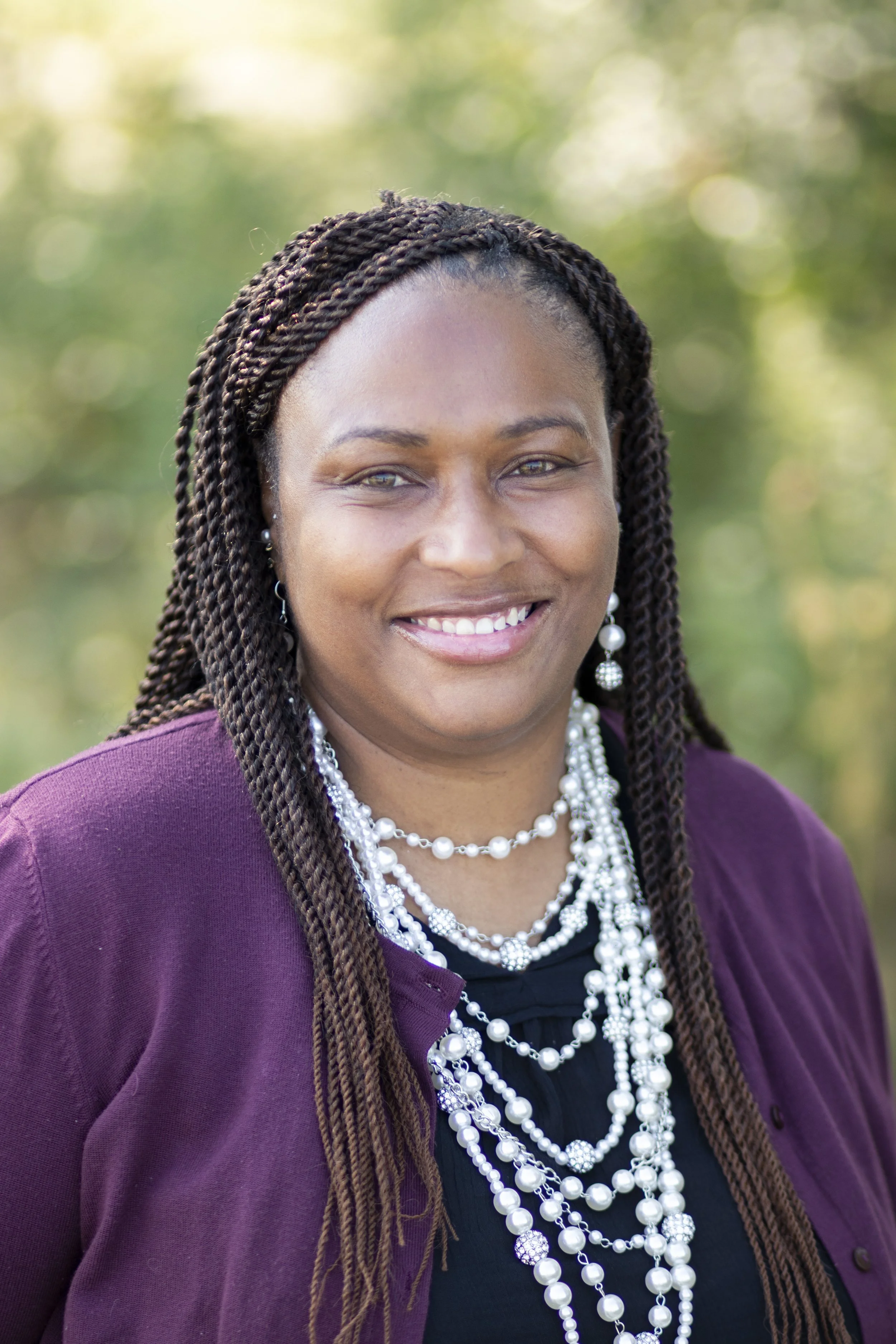Systems for Inclusive Learning
Designing Systems for Learning that
Intentionally Include Everyone
School systems are at a critical intersection—navigating state and federal mandates, striving for instructional inclusion, and seeking meaningful support to dismantle systemic barriers. Systems for Inclusive Learning Center of Excellence is uniquely positioned to respond to these needs by helping districts design sustainable structures that foster access, belonging, and high expectations for all learners.
This work supports districts not only in meeting compliance requirements but also in reimagining and redesigning systems with a universal core that sustains inclusive practices, addresses disproportionality, and aligns instruction.
Systems for Inclusive Learning Services
When schools center inclusion, students thrive— academically, socially and emotionally. Educators feel empowered. Families place more trust in the system. Inclusion becomes more than a buzzword—it becomes the blueprint.
🌱 Inclusion-Rooted Systems Design & Reflection
-
CESA 2 facilitates a focused, measurable plan that aligns vision, priorities, initiatives, resources, and metrics—and is built for implementation. We guide teams through current-state analysis, goal/KPI development, driver mapping, and review cycles, resulting in a practical roadmap and scorecard. Coaching supports disciplined execution and continuous improvement that leads to better student results.
Impact: Coherent initiatives, clear measures of success, disciplined implementation, and better student results.
-
Wisconsin Multi-Level System of Support (WiMLSS) is a process for achieving higher levels of academic and behavioral success for all students. It is an overarching framework and logic for organizing and increasing the efficiency with which evidence-based practices are selected, organized, integrated, implemented, and adapted.
In the vision for WiMLSS, the three essential elements of high-quality instruction, balanced assessment, and collaboration systematically interact within a multi-level system of support to provide the structures to increase success for all students. Culturally responsive practices are central to an effective WiMLSS system and are evident within each of the three essential elements. In a Multi-level System of Support, schools employ the three essential elements of WiMLSS at varying levels of intensity based upon student responsiveness to instruction and intervention. These elements do not work in isolation. Rather, all components of the visual model inform and are impacted by the others. Taken together, this relationship forms Wisconsin’s vision for WiMLSS.
-
Grounded in the PCLS framework, CESA 2 partners with districts to make meaning of the current state and chart a path to a more inclusive, coherent system. The Inclusion Systems Audit reviews policies, instructional practices, resource allocation, schedules, and outcomes—using empathy interviews, inclusion walkthroughs, and document/data reviews—to surface structural and cultural inequities. Findings culminate in a prioritized action report with short- and long-term recommendations that build agency, confidence, and sustainable change.
Impact: Shared understanding of inclusion gaps, coherent action aligned to priorities, strengthened belonging and access, and sustained, district-owned improvement.
🔧 Instructional Inclusion & Practice Support
-
Using CAST’s UDL Guidelines, CESA 2 partners with educators to remove barriers at the design stage—shaping goals, methods, materials, and assessments so every learner can engage, access content, and show what they know. Through co-planning, lesson labs, and feedback cycles, we help schools move from “accommodations on demand” to proactive, inclusive design that grows student agency and outcomes. The UDL framework is grounded in learning science and develops expert learners who are purposeful, resourceful, and strategic.
Impact: Greater access and participation, fewer reactive accommodations, higher student ownership and success.
-
Guided by DPI’s Model to Inform CRP and scholarship from leaders of color, CESA 2 partners with educators to honor students’ identities and communities, sustain high expectations, and teach through multiple perspectives. Through curriculum audits, routine design, and reflective coaching, we grow asset-based practice while examining and disrupting bias and inequitable systems.
Impact: Increased belonging and engagement, reduced discipline disparities, stronger outcomes for historically underserved students.
-
CESA 2 helps schools shift services into the core by co-planning supports and co-serving students where they learn best. Using learner profiles, time-blocking, and service maps, we clarify roles, maximize instructional minutes, and streamline schedules. Observation and data review ensure supports are targeted, efficient, and effective for students who need them most.
Impact: More instructional minutes in core, fewer pull-outs, clearer roles, improved progress for students who need the most.
📊 Data for Inclusion
-
Grounded in multiple PLC frameworks—not a one-size-fits-all approach—CESA 2 consultants help you select and adapt models such as PLC at Work®, Data Wise, High Reliability Schools, Networked Improvement Communities, and lesson study to fit your context. We support teams to clarify essential standards, design common assessments, and run disciplined inquiry cycles anchored in student evidence. We also establish norms, roles, and data protocols and coach facilitation so collaboration becomes routine and results-oriented—closing opportunity gaps and accelerating learning for every student.
Impact: Consistent collaborative routines, sharper use of common assessments, faster responses to student needs, and reduced opportunity gaps.
-
CESA 2 partners with districts to examine how, why, and when students access math content. We audit current courses, prerequisites, sequencing, and achievement/enrollment data to identify inequities and dead-end pathways. Then we co-design a coherent, standards-aligned sequence—including 3rd- and 4th-year options for ALL students—and the decision rules, supports, and schedules that make access real.
Impact: Broader access to grade-level and advanced math, increased 3rd/4th-year participation, reduced tracking and gatekeeping, stronger K–12 coherence, and improved readiness for college, career, and life.
-
Using human-centered design practices, CESA 2 trains and supports teams to conduct ethical, purposeful interviews with students, families, and staff to surface needs, barriers, and bright spots. We help code findings, synthesize themes, and translate insights into pilots with clear measures—building trust and ensuring solutions fit real users. Empathy interviews can be embedded within the inclusion Systems Audit or used independently to strengthen continuous improvement and root-cause analysis.
Impact: Elevated stakeholder voice, deeper understanding of root causes, stronger belonging and trust, and responsive changes in policy and practice that improve equitable outcomes.
-
CESA 2 convenes and coaches Title I leaders to move from “checking the box” to designing high-impact, compliant programs. We translate requirements into action—linking CNA results to plans and budgets, strengthening equitable services (including private schools), and building evaluation and family engagement that actually improves student outcomes.
Impact: Fewer findings, stronger alignment to need, better outcomes for historically underserved students.
🤝 Collaboration & Capacity Building
-
Drawing on research-based models (e.g., station, parallel, alternative, and team teaching), CESA 2 coaches partners to achieve true parity, shared planning, flexible grouping, and common assessment. We align IEP/ML goals within core instruction and provide look-fors, rehearsal, and feedback to refine practice—boosting engagement and growth for all learners.
Impact: Stronger inclusion, better IEP/ELP progress, higher engagement and achievement for all
-
CESA 2 coaches district and school leaders to establish purpose-built teams that drive improvement. We help define charters and roles, install meeting rhythms and decision protocols, and align scorecards to strategic priorities—so leadership teams move from discussion to disciplined implementation.
Impact: Clear governance and execution, faster decisions, increased initiative coherence, and better student results.
-
The Peer-to-Peer Mentorship service provides structured opportunities for educators to learn from one another using the SEE-KS Framework (Social-Emotional Engagement – Knowledge & Skills). Mentorship pairs or small groups engage in collaborative reflection, classroom observation, and feedback cycles focused on strengthening learner engagement and instructional equity. Using SEE-KS practices, educators deepen their understanding of social-emotional engagement, co-analyze instructional strategies, and co-design adjustments to increase access and belonging for all learners.
Impact: Strengthens educator capacity to recognize, analyze, and enhance learner engagement through peer collaboration. Builds a culture of shared responsibility for inclusive practices while fostering sustainable systems of professional growth. Educators benefit from practical, job-embedded learning that directly supports classroom application.
-
CESA 2 brings directors together to align initiatives, sharpen decision rules, and lead continuous improvement. We connect strategy to classroom practice—building review cycles for curriculum and assessment, installing data routines, and aligning professional learning so efforts add up for students.
Impact: Clear priorities, aligned systems, consistent instruction, and improved student results.
-
CESA 2 supports principals in running learning-centered schools. We practice observation and feedback, strengthen PLC and WiMLSS routines, and tune schedules, supervision, and family partnerships—so leaders move from firefighting to disciplined implementation. We also connect evaluation to development by building inter-rater reliability, streamlining evidence collection, and improving conferences so SLOs/PPGs, observations, and coaching drive real growth.
Impact: Stronger instruction and safer climate; reliable evaluations and better feedback; improved teacher growth, retention, attendance, and achievement.
-
CESA 2 convenes Union High School leaders to tackle secondary-specific challenges: 9th-grade on-track, MTSS at the high school level, pathways and CTE, dual credit and work-based learning, and articulation with K-8 feeders. We align supports, and partnerships to boost graduation and postsecondary success.
Impact: Higher 9th-grade on-track rates, increased dual credit/WBL, improved graduation and postsecondary outcomes, reduced disparities.

Meet Latricia Johnson
Senior Director, Systems for Inclusive Learning
Latricia Johnson serves as Senior Director for the Systems for Inclusive Learning Center for CESA 2. She has worked in Milwaukee Public Schools, the School District of Beloit, and West Allis/West Milwaukee School Districts.
Staff Listing
Deidra Gorman
Senior Director, Behavior & Mental Health/WiMLSS Consultant
Latricia Johnson
Senior Director, Systems for Inclusive Learning
Kris Statz
WiMLSS Consultant, Literacy Consultant
Kim Stieber-White
Curriculum, Coaching and Digital Learning Consultant
Jen Townsend
Implementation Specialist



